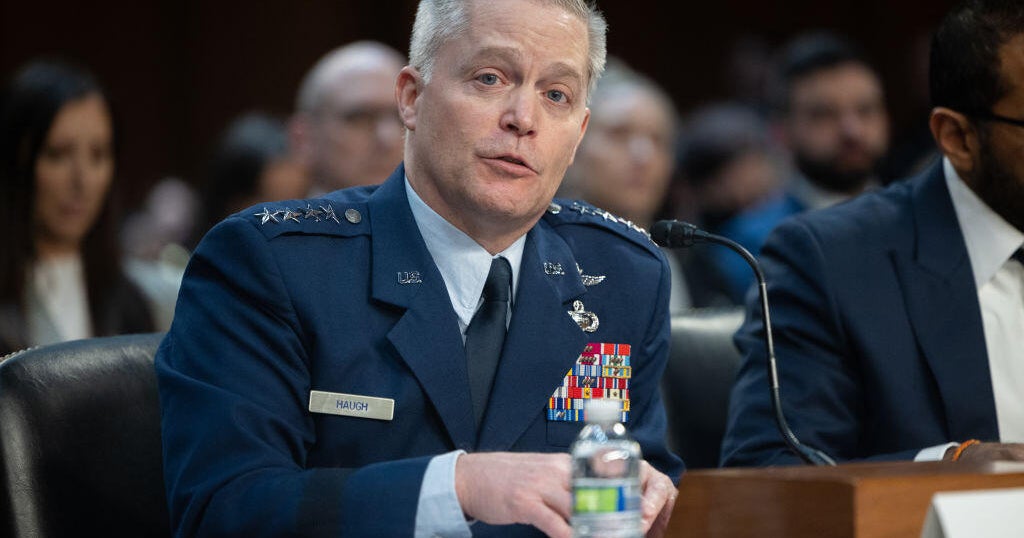In a surprising move from the Trump administration, General Timothy Haugh, the head of the National Security Agency (NSA) and U.S. Cyber Command, has been dismissed from his position. This decision was confirmed late Thursday night by prominent Democratic officials from both the House and Senate intelligence committees. Rep. Jim Himes of Connecticut and Sen. Mark Warner of Virginia expressed their dismay, highlighting concerns about the implications of such a decision in light of ongoing and evolving cyber threats to national security.
| Article Subheadings |
|---|
| 1) Overview of Haugh’s Dismissal |
| 2) Reaction from Congressional Leaders |
| 3) Context of Haugh’s Tenure |
| 4) Implications for National Security |
| 5) Future of Cybersecurity Leadership |
Overview of Haugh’s Dismissal
General Timothy Haugh‘s removal as the director of the NSA and U.S. Cyber Command has echoed across various platforms and has raised immediate concerns regarding the leadership in American intelligence operations. Announced late Thursday by top Democratic officials, this decision cannot be overlooked, especially considering the multifaceted threats the nation faces in cyberspace. Haugh, who had been in his post for just over a year, faced an unexpected ouster, making him one of the short-lived leaders in this vital role. The announcement came without clear reasons and left many, including intelligence professionals and lawmakers, grappling with the ramifications of the sudden leadership change within the intelligence community.
Reaction from Congressional Leaders
In response to Haugh’s dismissal, Congressman Jim Himes, the ranking member of the House Intelligence Committee, stated he was “deeply disturbed” by the move, suggesting that Haugh’s adherence to lawful and national security-centered principles may have influenced the decision. Senator Mark Warner, vice chair of the Senate Select Committee on Intelligence, similarly expressed incredulity, pointing to the timing of the dismissal amid increasing incidents of cyber threats, notably referencing the Salt Typhoon cyberattack tied to Chinese actors. Both leaders criticized the administration for prioritizing political alignments over the nation’s security needs.
Context of Haugh’s Tenure
General Haugh’s appointment to the role came after a turbulent confirmation process which began under the former president, Joe Biden’s administration. Initially nominated in May 2023, his confirmation took several months to finalize because of a hold placed by Republican Senator Tommy Tuberville, who protested against the Pentagon’s policies concerning the reimbursement of travel expenses for service members seeking reproductive health care. Haugh’s time in the position, though short, was marked by various challenges, including navigating unprecedented cyber threats and managing sensitive operational contexts, such as recent high-profile leaks that raised questions about cybersecurity protocols.
Implications for National Security
The consequences of Haugh’s firing extend beyond personnel changes; they touch on the efficacy of the U.S. intelligence community as it grapples with mounting cyber threats. Senator Warner highlighted the critical nature of cybersecurity to U.S. safety, questioning how the suspension of a proven leader cone without any specific rationale would bolster American defenses. The landscape of national security is complex and expanding, and experts are concerned that such abrupt changes in leadership may lead to lapses in continuity and strategic focus, specifically against adversaries who are continuously probing for vulnerabilities.
Future of Cybersecurity Leadership
The question now stands: who will fill the void left by General Haugh? The lack of clarity around his replacement adds another layer of complexity to an already precarious security environment. As the nation continues to face increasing cyber threats, including potential references to efforts by foreign entities to compromise U.S. technology infrastructure, the immediate need for a seasoned and effective leader in the NSA becomes paramount. Finding a qualified successor who can maintain momentum and stability within the agency is essential, particularly in light of Haugh’s recent testimony before Congress regarding sensitive national security matters and ongoing investigations into significant cybersecurity breaches.
| No. | Key Points |
|---|---|
| 1 | General Timothy Haugh was dismissed from his position as NSA and U.S. Cyber Command leader. |
| 2 | Lawmakers expressed concern over the implications of this leadership change amid increasing cyber threats. |
| 3 | Haugh’s confirmation process faced delays due to political disagreements surrounding Pentagon policies. |
| 4 | The absence of clear reasons for his firing raises questions regarding the administration’s priorities concerning national security. |
| 5 | Concerns grow about continuity and effectiveness in the NSA in the wake of Haugh’s unexpected exit. |
Summary
The dismissal of General Timothy Haugh as head of the NSA and U.S. Cyber Command has sparked significant dialogue on the stability and leadership of U.S. intelligence operations at a time when cyber threats are escalating. Lawmakers have raised alarm over the implications of such a sudden change in leadership and what it signifies about the administration’s approach to national security. As the search for a successor unfolds, the importance of having a steady and experienced leader is underscored amid a backdrop of ongoing cyber vulnerabilities.
Frequently Asked Questions
Question: Who is General Timothy Haugh?
General Timothy Haugh served as the head of the National Security Agency and U.S. Cyber Command, responsible for protecting U.S. government communications and cybersecurity strategies.
Question: Why was Haugh’s dismissal notable?
Haugh’s dismissal was notable because it occurred during a heightened period of cyber threats, raising concerns about national security leadership and effectiveness.
Question: What implications does Haugh’s firing have for U.S. cybersecurity?
The implications of Haugh’s firing for U.S. cybersecurity include concerns about continuity in leadership, potential disruptions in strategic focus, and overall preparedness against cyber intrusions.


